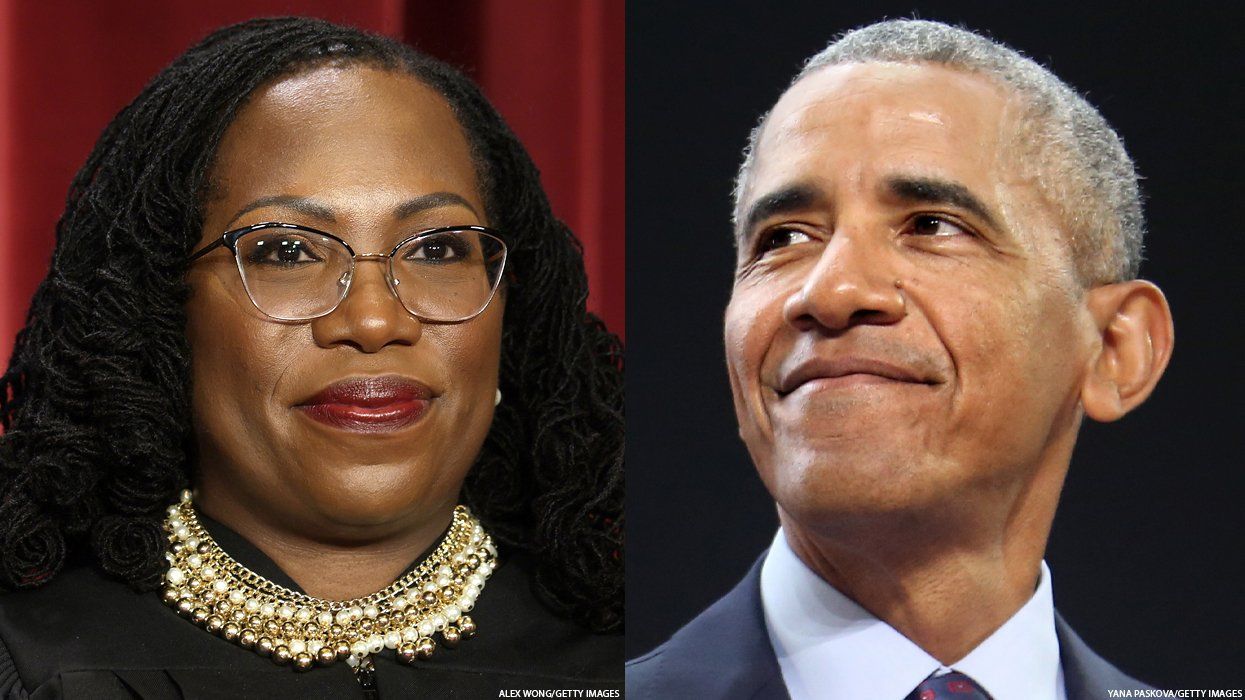Prominent Black leaders in the United States are speaking out against the Supreme Court ruling that ended affirmative action for the nation's colleges.
In a statement, former President Barack Obama said affirmative action policies “allowed generations of students like Michelle [Obama] and me to prove we belonged."
“Like any policy, affirmative action wasn’t perfect," he wrote. "But it allowed generations of students like Michelle and me to prove we belonged. Now it’s up to all of us to give young people the opportunities they deserve — and help students everywhere benefit from new perspectives."
In the case that led to the recent Supreme Court decision, a conservative student organization, Students for Fair Admissions (SFFA), had sued Harvard and UNC schools in 2014 over their practice of affirmative action. They alleged that Harvard discriminated against Asian students, and that UNC discriminated against white applicants by denying them admission. SFFA lost their case in local courts, but appealed.
Affirmative action has been debated since it was first introduced in 1978, when the SCOTUS of the time ruled that diversity brought "educational benefits," and that there is "governmental interest" in considering race when dealing with college admissions. Decades of research in social sciences support this consensus among universities in the U.S.
Former First Lady Michelle Obama said in a separate statement today that “my heart breaks for any young person out there who’s wondering what their future holds — and what kinds of chances will be open to them.”
“And while I know the strength and grit that lies inside kids who have always had to sweat a little more to climb the same ladders, I hope and I pray that the rest of us are willing to sweat a little, too,” she added. “Today is a reminder that we’ve got to do the work not just to enact policies that reflect our values of equity and fairness, but to truly make those values real in all of our schools, workplaces, and neighborhoods.”
When previously asking the Supreme Court to uphold the practice, several universities noted that racial diversity among students and staff is "virtually impossible" to achieve at competitive universities without affirmative action. States that had already banned the practice were shown to have created extreme consequences for students of color.
Prominent civil rights attorney Ben Crump also responded to the decision, writing in an email statement that the ruling "reeks of the intellectual justification of discrimination."
"As we have recently witnessed in politics, this is a coordinated effort to undo much of the progress made to turn America into a land of equal opportunity," he said. "The truth is, Black Americans do not have equal opportunity because our starting line is miles behind that of our white peers. It’s obvious that social inequities and systematic discrimination create a more difficult and treacherous path for Black and Brown people to achieve stability and success, blocking their ability to accumulate generational wealth and get their families to a place of financial security."
Crump added: "Affirmative action opened doors for bright, young people that were closed to them for generations.”
Liberal Supreme Court Justice Ketanji Brown Jackson, the first Black woman on the bench, also blasted the decision in her dissenting opinion, where she called the legal justifications from conservatives "ostrich-like."
“The best that can be said of the majority’s perspective is that it proceeds (ostrich-like) from the hope that preventing consideration of race will end racism,” she wrote. “But if that is its motivation, the majority proceeds in vain. If the colleges of this country are required to ignore a thing that matters, it will not just go away. It will take longer for racism to leave us.”
Jackson continued: “With let-them-eat-cake obliviousness, today, the majority pulls the ripcord and announces ‘colorblindness for all’ by legal fiat. But deeming race irrelevant in law does not make it so in life. And having so detached itself from this country’s actual past and present experiences, the Court has now been lured into interfering with the crucial work that UNC and other institutions of higher learning are doing to solve America’s real-world problems.”
- Colleges Should Be Allowed to Consider Race in Admissions, Most Americans Say ›
- Without Affirmative Action, the Court of Public Opinion Rules ›
- Asian Americans Feel Used Like 'Pawns' in Affirmative Action Ruling ›
- Clarence Thomas Once Said Affirmative Action Is ‘Critical’ For Society ›
- Supreme Court Split on Ethics Committee, Kagan Reveals ›



















































